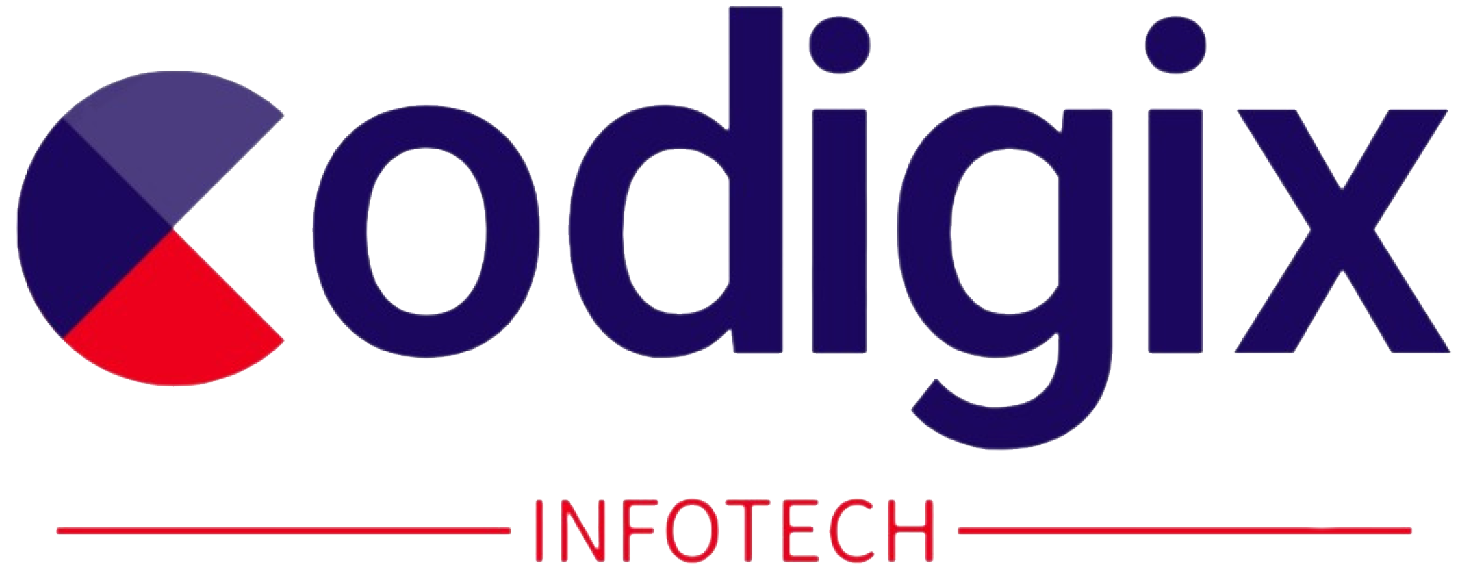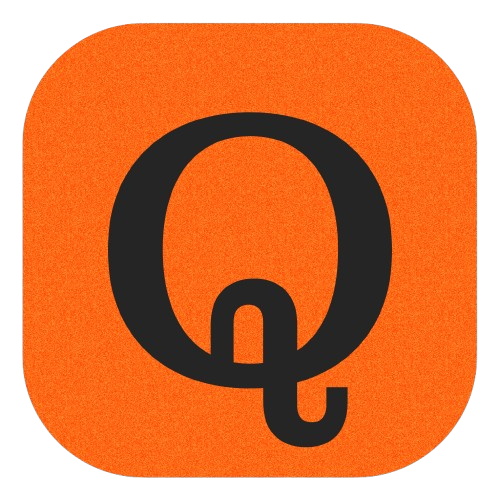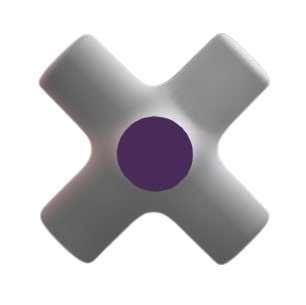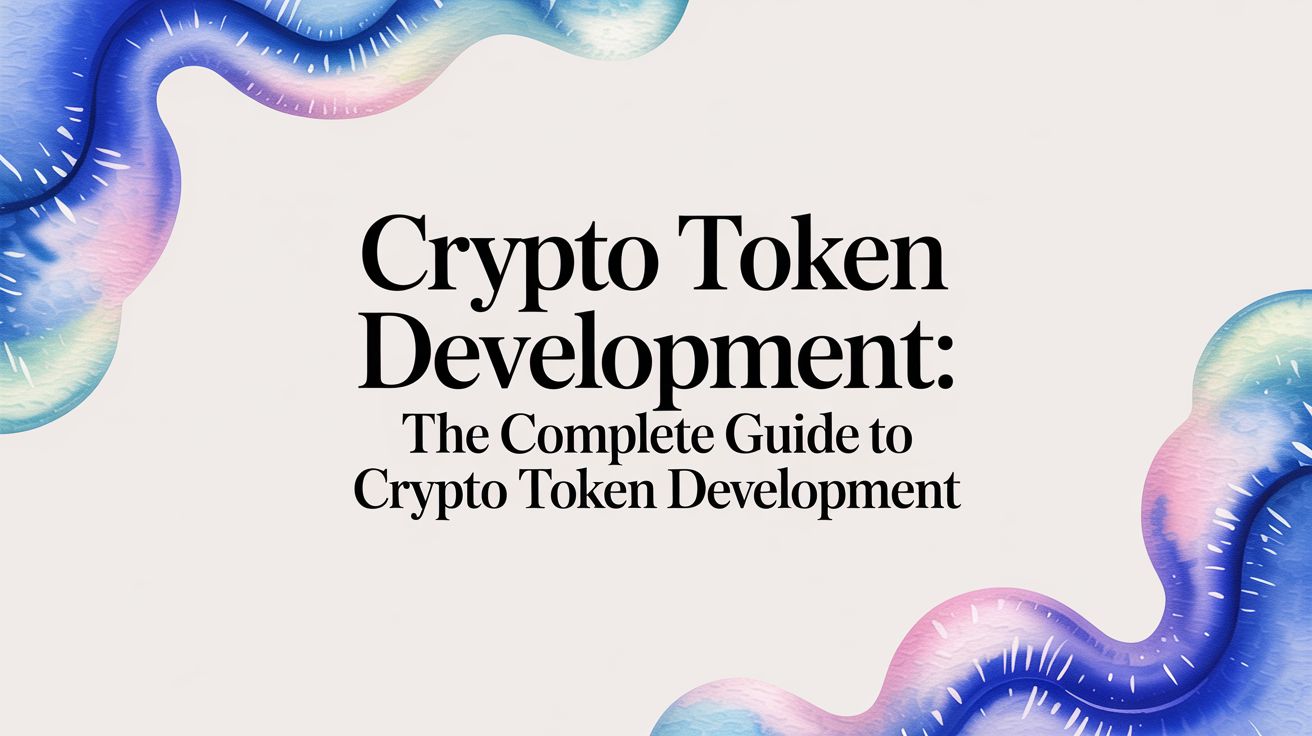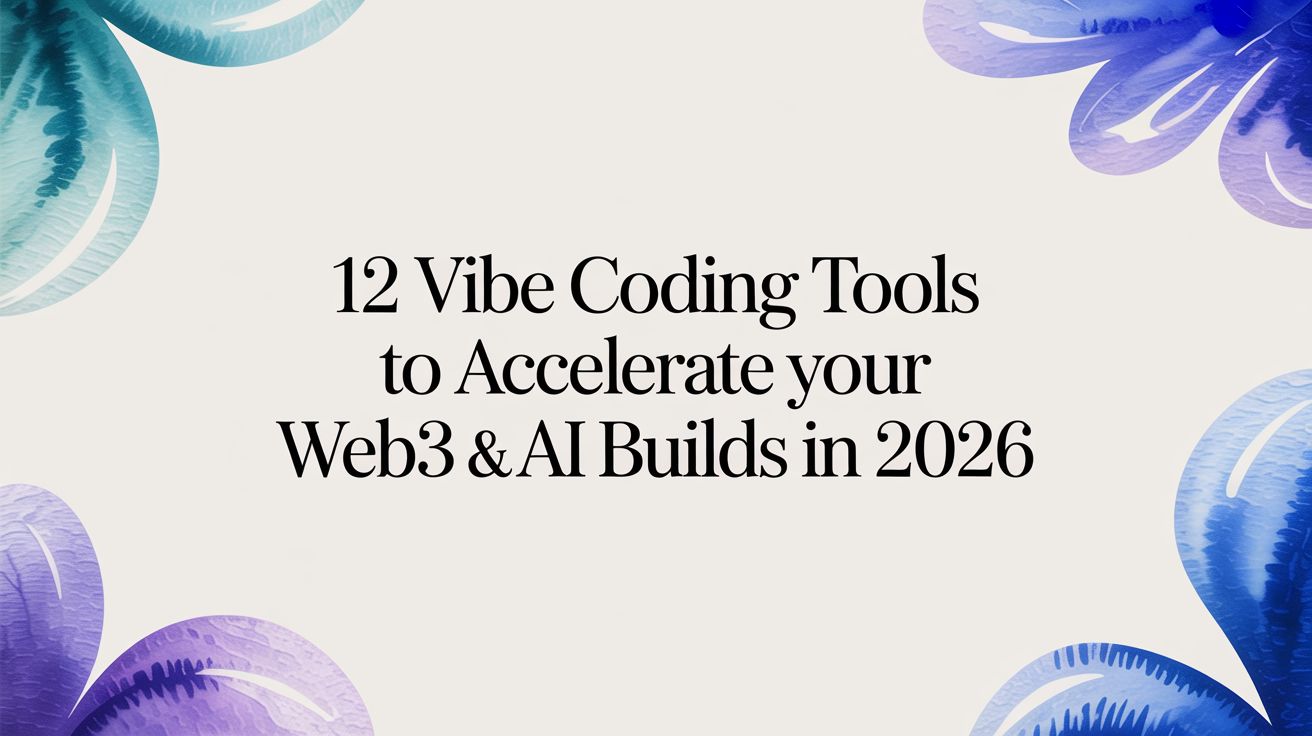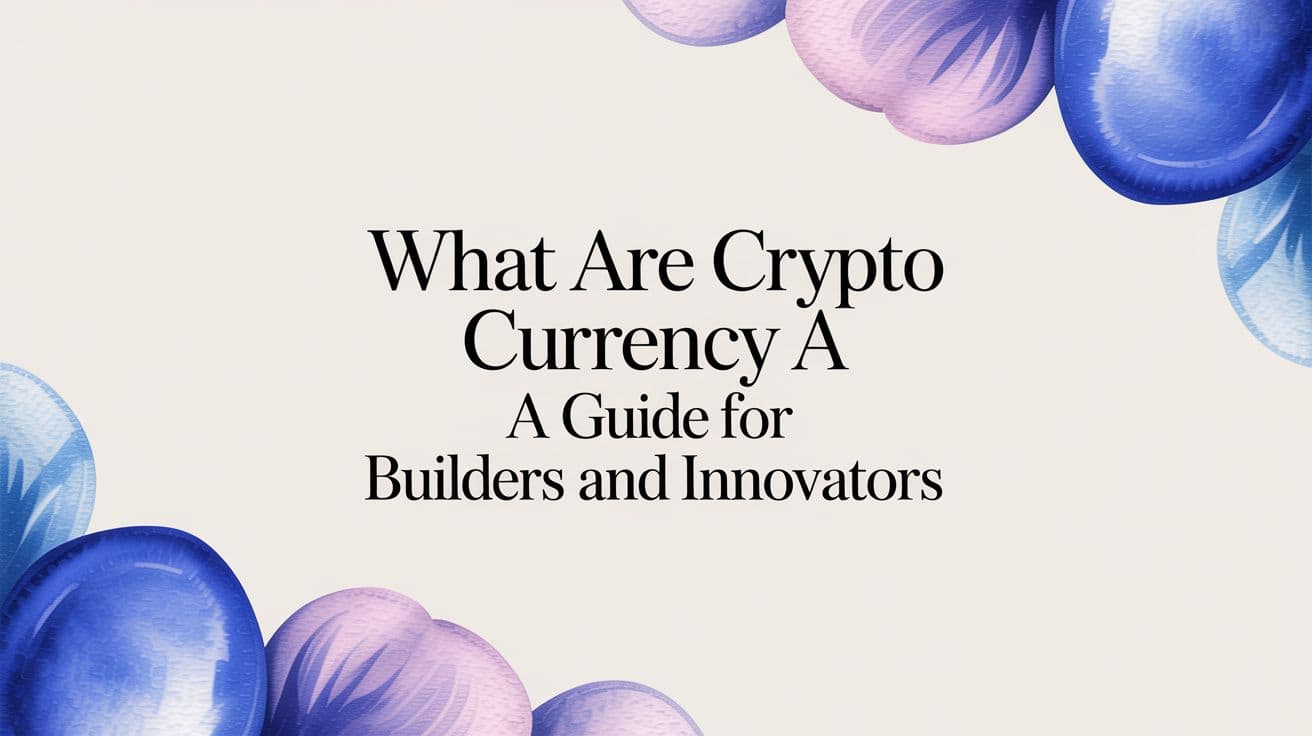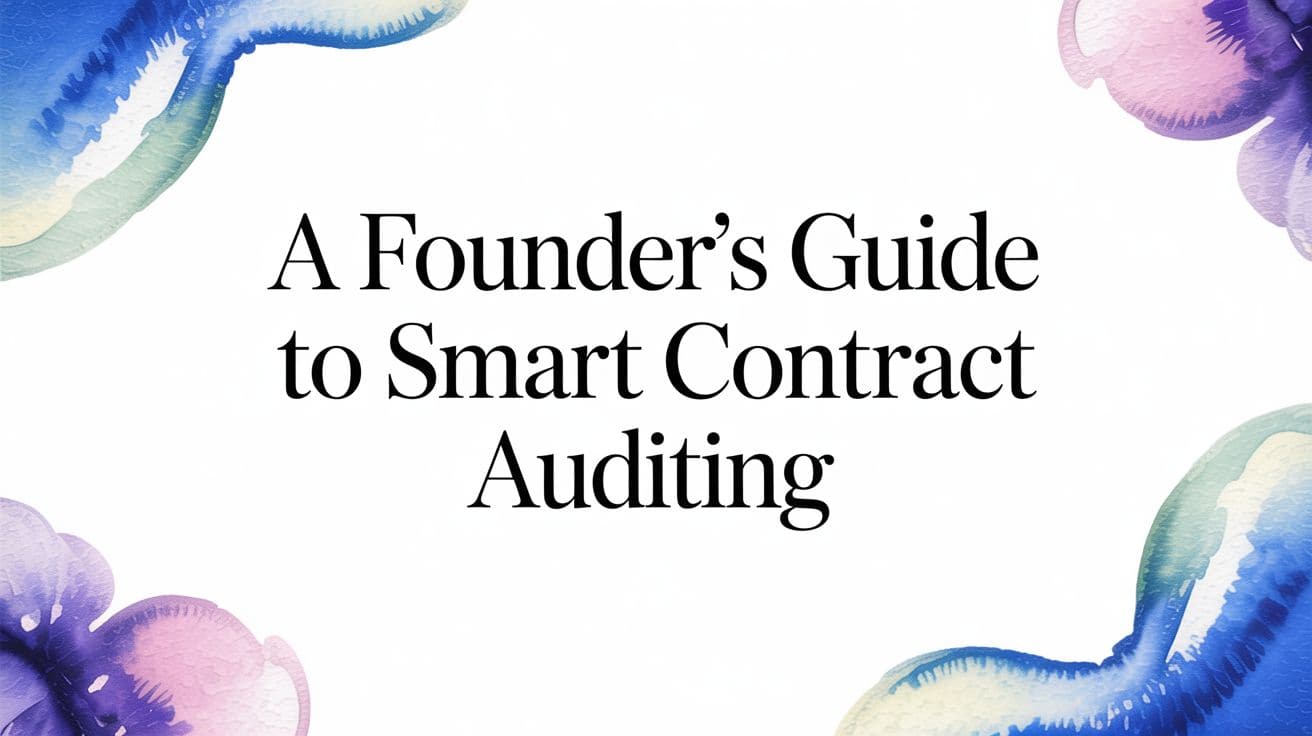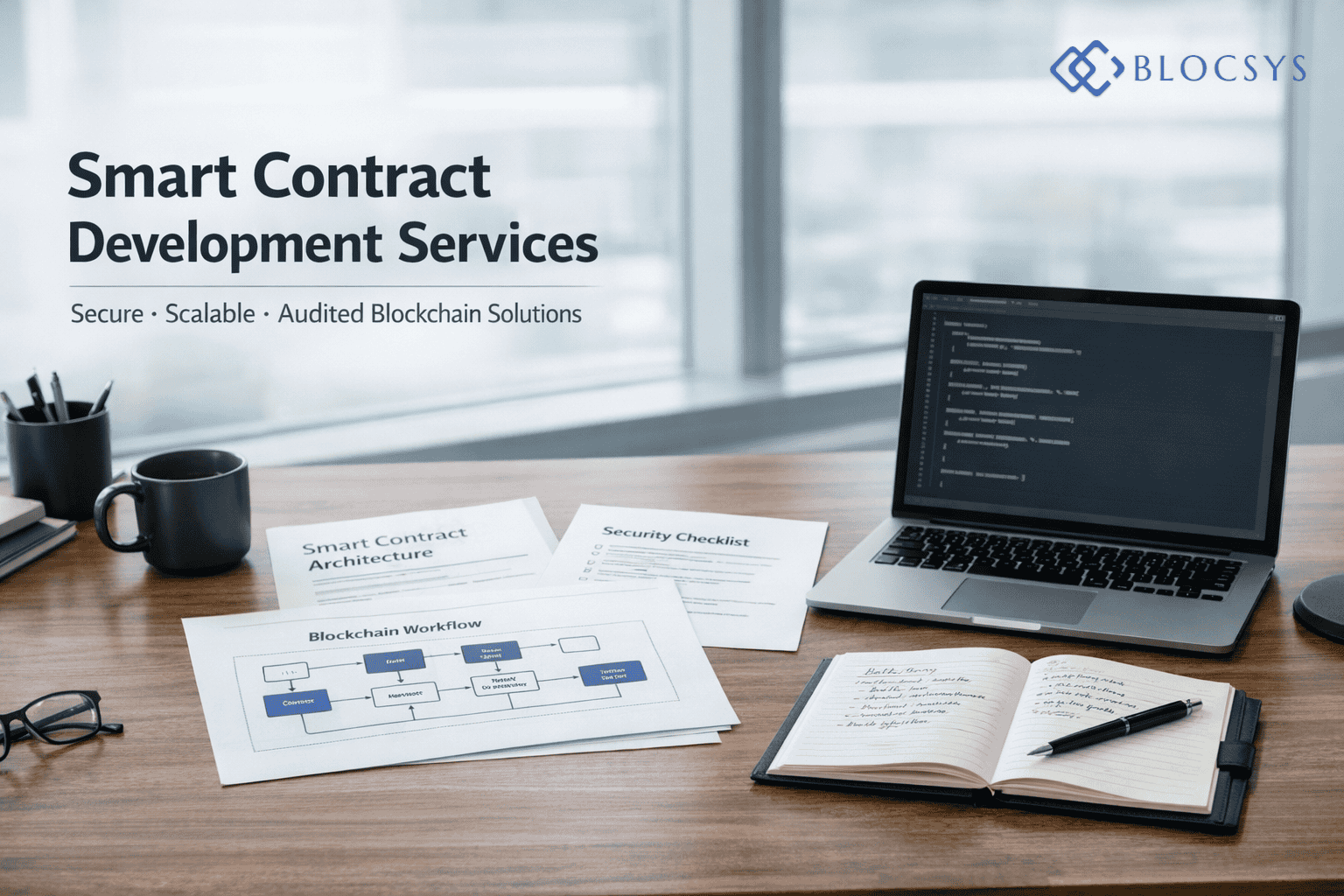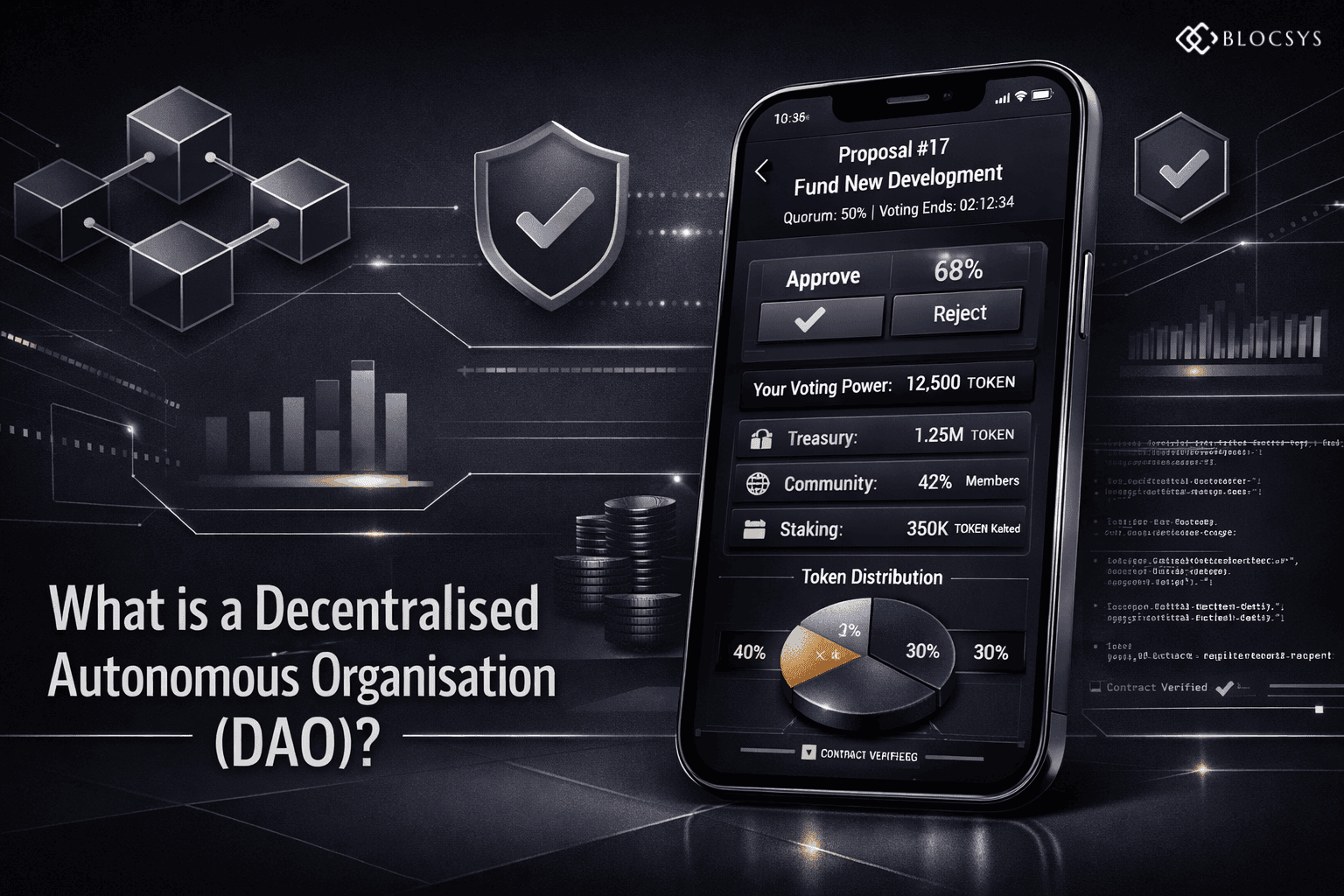All-in-One Blockchain & AI Development Company
Build next-gen Web3 applications with our end-to-end blockchain and AI development solutions. From real-world asset tokenization and AI agents to prediction market platforms, crypto trading systems, DeFi trading platforms, custom dApps, and Telegram mini apps — we help startups and enterprises launch fast, scale smart, and lead in the decentralized future
Featured on
- Launch Your White-Label Real World Asset Tokenization Platform in Just 5 Days


Embrace the future with our new way
1
+ Years of Experiences
1
+ Projects completed from all over the world
1
+ Global Team
1
+ Satisfied Clients
Services
Unleash your potential with our tailored solutions for your every tech needs

Prediction Market Platform
Build decentralized prediction markets that enable real-time forecasting and secure, data-driven outcomes powered by blockchain.
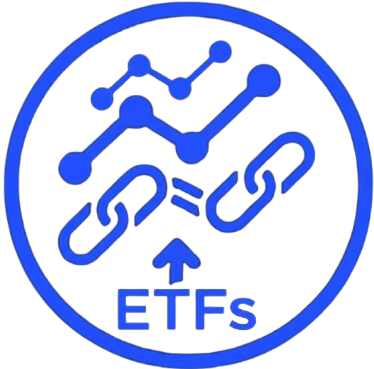
DeFi Trading Platform
Build multi-chain DeFi trading platforms with secure vault creation, smart contract automation, and seamless decentralized asset trading.

Crypto Trading Platform
Build secure crypto trading platforms with spot and perpetual trading, token swaps, deposits, real-time market data, and scalable trading infrastructure.
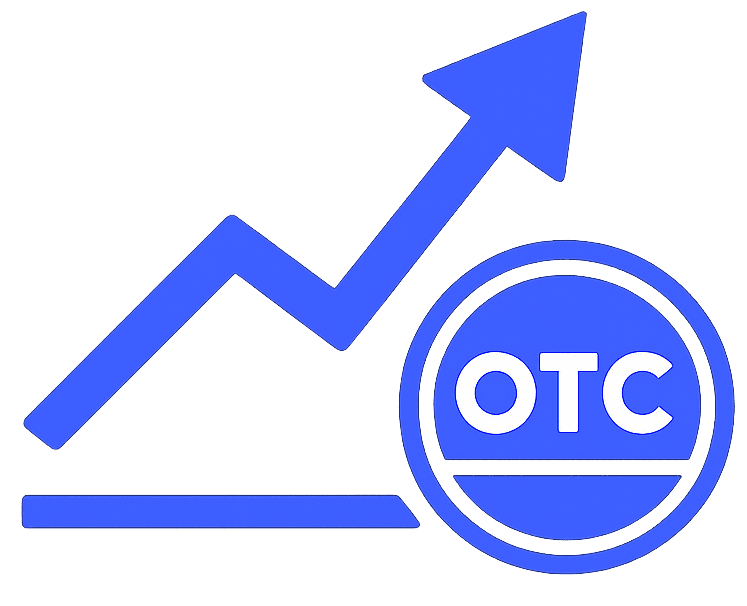
OTC Trading Platform
Build secure OTC crypto trading platforms with real-time pricing, RFQ execution, high liquidity, and compliant settlement for seamless large-volume trades with minimal slippage.
Real World Asset Tokenization
Tokenize real assets securely and reach global investors with trusted blockchain tokenization solutions for scalable growth.
Telegram Mini Apps
Build custom Telegram Mini Apps to boost user engagement and automate tasks with secure, scalable solutions.
Artificial Intelligence (AI)
AI solutions to automate processes, enhance decision-making, and unlock new business opportunities with powerful AI models.
AI Agents
Develop smart AI Agents to automate workflows, enhance support, and boost business productivity with secure solutions.
Blockchain Consulting
Expert blockchain consulting to launch, scale, and secure your project with tailored strategies and proven solutions.
DeFi & Dapps development
Build secure DeFi platforms and DApps to automate transactions and grow your crypto business.




Why choose us
Boost Your Business Growth with RWA Tokenization, Web3 & DeFi
- Real World Asset (RWA) Tokenization Experts
- End-to-End Blockchain & AI Development
- AI Agents & Deep Learning Integration
- Telegram Mini App Development
- Custom Solutions with 24/7 Support
Our blog
What ‘s new?
Crypto Token Development: A Complete 2024 Guide
Crypto token development is the process of creating digital assets[…]
February 22, 2026
12 Vibe Coding Tools to Accelerate Your Web3 & AI Builds in 2026
Choosing the right development environment is no longer just about[…]
February 21, 2026
What Are Crypto Currency? A Guide for Builders & Innovators
Cryptocurrency is a digital or virtual asset secured by cryptography,[…]
February 20, 2026
The Ultimate Guide to Smart Contract Auditing
A smart contract audit is a comprehensive security analysis of[…]
February 19, 2026
Smart Contract Development Service: A Guide for 2024
What is a smart contract development service? It is a[…]
February 18, 2026
What is a DAO? Your Guide to Building a Successful DAO
What is a Decentralised Autonomous Organisation (DAO)? At its core,[…]
February 17, 2026
Our Team
We bring a wealth of skills from a wide range of backgrounds
"We're very happy and look forward to continuing our engagement with their team."
Founder, Klink Finance
Chris James Murphy

"We're impressed with their readiness to accept newer challenges and learn new technologies."
Founder & CEO, CarbonAnalytics
Shravane Balabasqer

"We have been very happy with the partnership."
CEO, Panacea Financial
Tyler Stafford

"They were always on time and committed to the deadline established for the project."
CTO, Spreetail
Jake Schmitt

"They never failed to deliver on time and always had suggestions to improve the scale of the app."
Executive, Buds Beauty
Aamna Mani
"They combined speed with clarity and brought real value through their design-to-deployment workflow."
Owner, Astart LLC FZ
Kirill Klinberg

"Their project management was tight and responsive."
BA & BD, TGE Pad
Tamara Barybina

"We're very happy and look forward to continuing our engagement with their team."
Founder, Klink Finance
Chris James Murphy

"We're impressed with their readiness to accept newer challenges and learn new technologies."
Founder & CEO, CarbonAnalytics
Shravane Balabasqer

"We have been very happy with the partnership."
CEO, Panacea Financial
Tyler Stafford

"They were always on time and committed to the deadline established for the project."
CTO, Spreetail
Jake Schmitt

"They never failed to deliver on time and always had suggestions to improve the scale of the app."
Executive, Buds Beauty
Aamna Mani
"They combined speed with clarity and brought real value through their design-to-deployment workflow."
Owner, Astart LLC FZ
Kirill Klinberg

"Their project management was tight and responsive."
BA & BD, TGE Pad
Tamara Barybina

EXCELLENTTrustindex verifies that the original source of the review is Google. Grateful to be part of Blocsys Technologies — a place that feels more like a family than just a workplace. The International exposure I’ve gained here in Web3, Blockchain, and AI has been life-changing. Every day, I’m learning, growing, and pushing my limits, all thanks to a team that truly believes in me. Proud to be building the future with Blocsys! 💙Trustindex verifies that the original source of the review is Google. Working at Blocsys has been a truly experience! The leadership is supportive, the team is innovative and the work culture encourages growth and learning especially in the exciting world of Web3 and Blockchain. A great place to start and grow your career!Trustindex verifies that the original source of the review is Google. I’ve had a positive experience working at Blocsys. The work environment is supportive, the team is collaborative, and there are good opportunities to learn and grow. Management is approachable, and overall the company encourages a healthy and productive culture. I’m glad to be part of it.Trustindex verifies that the original source of the review is Google. Working with Blocsys was a truly valuable experience. I enhanced my learning and communication skills while handling international sales leads. The supportive team and real-time exposure helped me understand market trends and client needs better. Highly recommended for anyone seeking practical growth!Trustindex verifies that the original source of the review is Google. I had a great experience working at Blocsys Technologies for 1 year. During this time, I gained knowledge in multiple technologies as well as functional aspects of projects. Our CEO, Shantikumar Choughule Sir, has been a true guide and mentor his knowledge and support made working here very inspiring. The company’s work culture is excellent, and the seniors and team members are always supportive. I learned a lot and truly enjoyed being part of such a collaborative and innovative environment.Trustindex verifies that the original source of the review is Google. Working at Blocsys Technologies has been a really positive experience for me. The company provides a good environment to learn and grow, especially in the field of blockchain development. I have had the chance to work on interesting projects, improve my technical skills, and collaborate with a supportive team. The management is approachable and open to new ideas, which makes it easier to contribute and feel valued. What I appreciate most is the culture of teamwork and knowledge sharing, it creates a motivating atmosphere to do better every day. Overall, Blocsys is a great place for anyone who wants to build their career while exploring new technologies.Trustindex verifies that the original source of the review is Google. Blocsys is the best place to start your career. The management focuses on delivering quality work to clients while also helping employees grow their skills. Great support, motivation, and hands-on exposure to Blockchain, Finance, and other trending technologies. Learned a lot directly from the CEO — truly inspiring leadership and vision.Trustindex verifies that the original source of the review is Google. Had a great experience during my 4-month internship at Blocsys as a Software Developer Intern. Got to work on real projects, learned a lot from the team, and really grew my skills. Super thankful for the support and guidance throughout — it was a solid start to my journey in tech. At last, I thank Kumar sir for giving me this opportunity.Trustindex verifies that the original source of the review is Google. I had a great experience working at Blocsys, great learning, growth opportunities and a good exposure. Special thanks to Shantikumar Sir for the inspiring leadership and guidance.Trustindex verifies that the original source of the review is Google. I worked at Blocsys for almost 2 years! It was my first job as a fresher with the limited knowledge. Over time I gained deep insights about blockchain technology and modern industry. I got the hands on experience on real-world blockchain project and web3 project which helped me to develop deep technical expertise. Every day i learned something new and i grew my skills through my tenure. The work environment was very supportive and everyone on team was helpful and encouraging and i am greatful for the learning and growth opportunities provided to me.
FAQs
Frequently Asked Questions (FAQ) — Insightful Answers from Blockchain Experts
01
What is Blocsys?
Blocsys is a leading provider of innovative blockchain solutions designed to help businesses harness the power of decentralized technology. We deliver secure, scalable, and customizable blockchain systems for companies worldwide.based in pune, india
02
How does Blocsys work?
Blocsys works by integrating blockchain technology into your business processes. We design and deploy decentralized applications (dApps), smart contracts, and secure blockchain networks to improve transparency, efficiency, and security.
03
What services does Blocsys offer?
We differentiate ourselves through our commitment to innovation, personalized solutions, and client satisfaction.
We offer a wide range of blockchain services, including:
Real world asset tokenization,Telegram mini app, Ai Agents,Blockchain development, Smart contract creation , dApp development, Blockchain consulting, Enterprise blockchain solutions, Cryptocurrency wallet development, Blockchain maintenance & support
04
Why choose Blocsys for blockchain development?
Businesses choose Blocsys for our expertise, end-to-end support, and custom blockchain solutions tailored to specific industries. We help you implement secure, cost-effective, and future-ready blockchain technologies.
05
Is blockchain secure for businesses?
Yes. When implemented properly, blockchain technology provides unmatched security through decentralization, cryptography, and transparency, reducing fraud and data tampering.
06
Does Blocsys build private blockchain networks?
Absolutely. We build both private (permissioned) and public (permissionless) blockchain networks, depending on your business needs and compliance requirements.
07
Can Blocsys help with blockchain consulting?
Yes. Our blockchain consulting services guide you through the entire process — from idea validation and technical feasibility to full deployment and maintenance.
08
How much does blockchain development cost?
The cost depends on your project’s scope, technology stack, and complexity. Contact our team for a free consultation and a custom quote.
09
How can I get started with Blocsys?
Getting started is easy! Simply contact us for a free consultation. Our blockchain experts will help you define your project requirements and create a roadmap for success.
10
Where is Blocsys located?
Blocsys serves clients globally with offices and partners in key regions. We help businesses worldwide leverage blockchain technology for growth and innovation.






